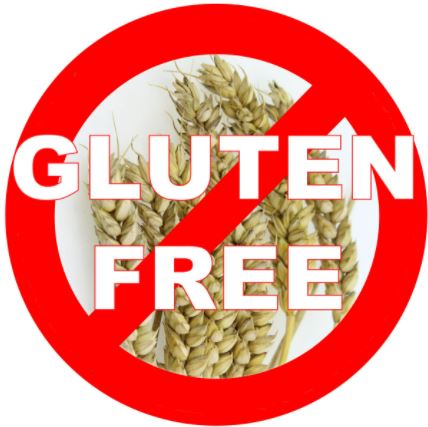
This is a common question that many people who are gluten sensitive ask themselves… “Can I still eat some gluten foods? It can’t hurt, right?”
Yes, it can… and almost always, it does.
The reason so many people struggle with adopting a gluten-free diet is that they’re unable to sacrifice the foods that they’ve grown to love. The donuts, cakes, cookies, ice cream, chocolates, burgers, etc. are all so tempting.
Since most of these foods contain gluten, consuming them will affect you. While in some cases you may find gluten-free alternatives, most of the time, you’ll still not be satiated and prefer the ones that you’re accustomed to eating.
- So, should you give in?
The answer is a definite NO. The truth of the matter is that millions of people have celiac disease and they don’t even know it. The symptoms of gluten intolerance are not unique. They could be mistaken for a lot of other health issues.
Digestive problems, fatigue, rashes, joint pain, hair loss, etc. are all signs of celiac disease. It’s easy to mistake them as small everyday issues that occur now and then.
The truth of the matter is that when you have celiac disease and you consume gluten, the adverse immune reaction in your body will damage the villi in your small intestine.
This leads to inflammation and many other health issues ranging from malabsorption to steatorrhea, where the intestine is unable to absorb fats and results in the fats becoming part of the stool.
So, while it merely looks like consuming gluten may leave you feeling a little bloated and cause gas, the truth of the matter is that damage is being wreaked on your gut health without you realizing it.
If done over a prolonged period, there can be severe health repercussions ranging from leaky gut syndrome to increased risk of cancer and other serious problems.
It’s worth noting that while some people suffer from celiac disease, others merely display similar symptoms, but tests will show that they don’t have the disease. So, why do they have the symptoms?
The answer quite simply is – they’re sensitive to gluten too.
This is a grey area in the medical industry too. Doctors are still debating if these group of people might be suffering from other health issues which display similar symptoms or if they’re just allergic to wheat.
Studies have shown that when the non-celiac gluten sensitive people cut out gluten from their diet, their condition improves, and the symptoms disappear. In cases like these, common sense should win the day.
If you’ve not been diagnosed with celiac disease, but you still have similar symptoms, just cut out all gluten from your diet and see if there’s any improvement. In most cases, there will be an immense difference. You don’t need doctors to tell you what to do. Your body will let you know what’s right just by how you feel.
To conclude, if you’re suffering from celiac disease or you’re gluten intolerant, it’s best to give up gluten completely and be on a gluten-free diet. Initially, you may have cravings for all the food you’re not supposed to eat. Exercise self-discipline and over time, your cravings for these foods will stop.
Learn to cook tasty dishes for yourself. Look for gluten-free alternatives so that you can still enjoy the foods you love… and use supplements to ensure that you’re getting all the nutrients you need. You can still lead a happy and rewarding life on a gluten-free diet.
Leave a Reply